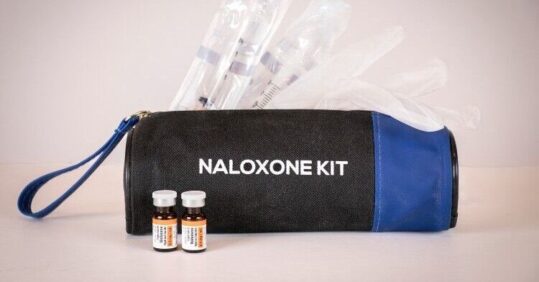Nurses to be able to provide ‘take-home’ supply of naloxone

Registered nurses will be allowed to provide ‘take-home’ supply of naloxone to individuals at risk of overdose or to their significant others, under government plans.
The government has announced that it will update legislation ‘over the course of this year’ to include registered nurses among named services and professionals able to provide a take-home supply of naloxone, which can reverse an opioid overdose.
This follows a consultation on proposals that received ‘overwhelming support’.
Other professionals and organisations not currently named in the legislation will also be able to register to be able to supply naloxone, subject to appropriate training and safeguards.
Related Article: Quick quiz: Management of COPD
Currently, only drug and alcohol treatment services can supply naloxone to individuals at risk of an overdose to take away for future use.
It can then be administered by anyone in the case of an emergency.
But the government said it wanted ‘people who are at risk of an overdose, or who know someone at risk of an overdose, to be able to access take-home naloxone as quickly and easily as possible’.
Following its consultation, the government said it intends to proceed with its plans to amend the Human Medicines Regulations 2012 with a list of certain services and professions exempt from the prescription-only requirements relating to the supply of naloxone.
The named services and professionals are:
- drug and alcohol treatment services (who already have this power)
- medical services of the armed forces
- police forces, including drug treatment workers commissioned to work in these settings
- prison staff
- probation officers
- registered midwives
- registered nurses
- registered pharmacy professionals
- registered paramedics
They will be able to supply naloxone but will not be required to do so.
And new services and professionals taking on this role must complete mandatory training, including around storing and supplying naloxone, and how to support a person being supplied with naloxone.
Related Article: Food insecurity and obesity: a North-South divide
The workplace or setting of registered nurses enabled to supply take-home naloxone has not been specified by the government.
The government’s consultation outcome, published this week, added: ‘Responses to this consultation demonstrated overwhelming support for allowing more organisations and individuals to supply take-home naloxone. There is consensus across respondents from many sectors, organisations and individuals that widening access to naloxone will save lives.
‘On this basis, the UK Government and devolved administrations will continue to bring forward the legislative changes outlined in the consultation. We aim to enact these changes over the course of this year, subject to parliamentary scrutiny in the UK Parliament and the Northern Ireland Assembly. We have engaged and consulted across the UK throughout this process and will continue to do this during the implementation and delivery of proposals.’
Responding to the news, chief executive of the Queen’s Nursing Institute Dr Crystal Oldman said the intention to make naloxone more widely available in services ‘will save lives’.
‘Nurses are central to the drug and alcohol services workforce but patients with addictions are seen in many other services in the community, including general practice, homeless and inclusion health services, community mental health services and health and justice services,’ she said.
Related Article: Lower stroke survival odds faced by people in poorer areas
‘More nurses and other regulated professionals able to such a administer life-saving intervention, with the right training and support, is good news.’
A version of this article was first published by our sister title The Pharmacist

See how our symptom tool can help you make better sense of patient presentations
Click here to search a symptom




